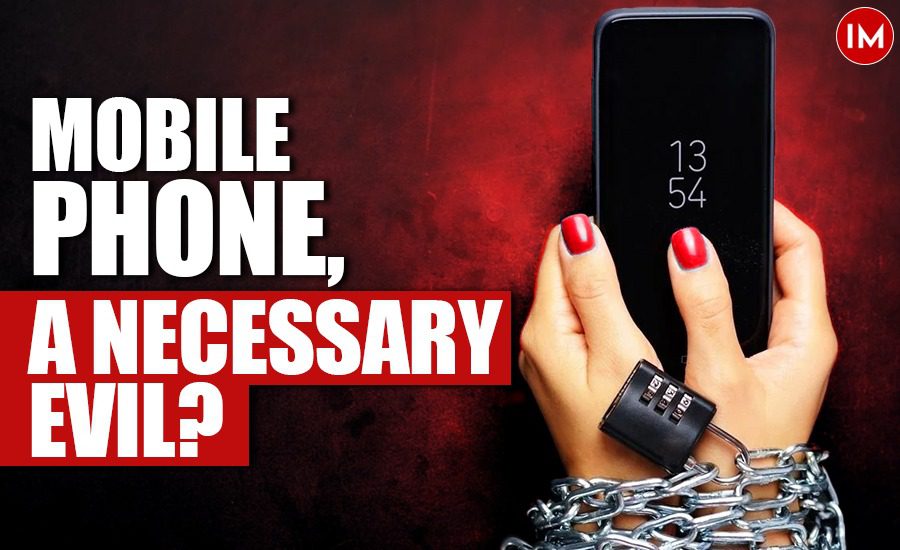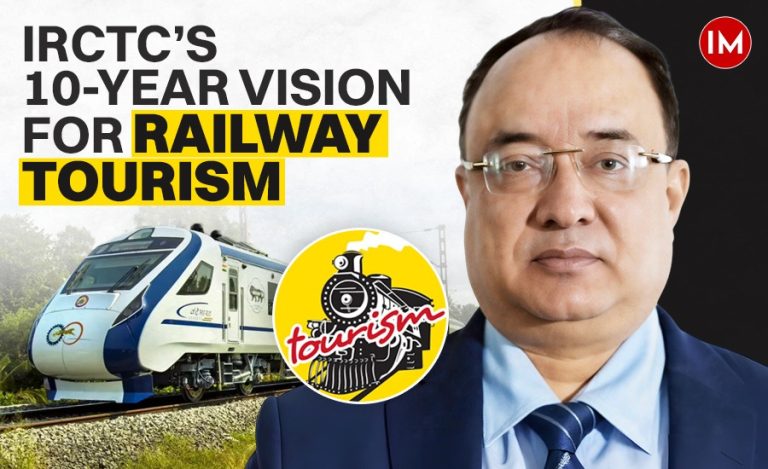By Anurag Goel, IAS (Retd)
A man forgets his wallet and doesn’t turn back. He forgets his mobile—and panic sets in. That is the world we live in today.
The mobile phone is no longer a gadget. It is an extension of our mind, our memory, our emotions, and often, our identity. We reach for it the moment we wake up, and keep it within arm’s reach until we sleep. In fact, many would rather stay apart from their spouse for a few days than be without their phone for a few hours. This deep integration raises a fundamental question: Is the mobile phone a great tool for our empowerment—or our most subtle and dangerous addiction?
IS MOBILE INDISPENSABLE?
In the urban, literate world, life without a mobile phone seems almost impossible. It connects us instantly—across cities, countries, and continents. Voice calls, video chats, and instant messages shrink distance and time. We carry our friends, families, offices, banks, calendars, entertainment, and even classrooms in our pockets.
Need to send money, order groceries, check the weather, track a parcel, read a newspaper, find a life partner, click a photo or join a global webinar? The mobile makes it all possible—anytime, anywhere.
For the working professional, it is a portable office. For the student, a gateway to knowledge. For the elderly, a lifeline to health services and social support. For entrepreneurs and small businesses, it’s a platform to reach customers, manage operations, and receive payments. Simply put, the mobile phone has become an enabler of modern life. It enhances our capacity to work, learn, communicate, and organise our world.
AMPLIFYING HUMAN INTELLIGENCE
At a deeper level, smartphones expand our very mental and physical reach. They store our memories—photos, notes, documents, birthdays. They augment our thinking—via calculators, navigation, dictionaries, AI tools. They support decisions—through reviews, data, news, and instant feedback. They give us a voice—through blogs, reels, podcasts, and social media.
Mobile is no longer just a communication device. It’s a digital prosthetic of the human brain, democratising access to power, knowledge, and opportunity. Even in villages, farmers check crop prices and weather forecasts. In slums, children access free online learning. In crises, people mobilise help in seconds. This is real empowerment.
Or, is it? Is this human intelligence, being amplified? Or, is it Artificial Intelligence in the process of de-humanizing us? A young woman, wise beyond her years, recently told me, “See, we already have zombies all around us- thinking mechanically without feeling, youngsters disconcertedly disconnected from-not bothered about-the elderly, chasing the mirage of happiness through materialism. I see a lot of change in the society because of cell phone. I feel very sad and disappointed!”
THE HIDDEN COST: ADDICTION AND ALIENATION
The mobile phone, like many of the emerging technologies, is only amplifying the existing fault lines within us. Like the strange case of Dr Jekyll and Mr Hyde, it has a dark side—one that is often invisible until it becomes overwhelming. Mobile addiction is not fiction. It is a neurological reality. Every ping, like, comment, and message stimulates dopamine—the brain’s pleasure chemical. Over time, the brain begins to crave that stimulation, trapping us in endless cycles of scrolling, clicking, watching, and comparing. We say we’re “just checking something,” but often find ourselves lost for hours in a digital maze.
Worse, this addiction creates a disconnect from real life: Families share rooms but not conversations; friends sit together but speak through screens; children seek validation from followers instead of parents. People see their mobiles even while walking, biking, driving, leading to accidents, including fatal ones. In our attempt to stay connected, we are becoming emotionally distant.
Studies link excessive mobile use to increased anxiety, sleep disorders, attention problems, and even depression. Constant notifications shatter focus. Algorithms push outrage and vanity over wisdom and reflection. AI-generated content gives instant answers, but erodes curiosity and critical thinking. We’re becoming smarter in one way—and emptier in another.
THE DOUBLE-EDGED SWORD
With the rise of AI and hyper-personalized content, the mobile phone has become more seductive—and more dangerous. Your phone now predicts your needs, reads your habits, suggests your words, and subtly shapes your thoughts. It tells you what to buy, watch, feel, and think. The boundary between user and used is blurring. AI, when wisely deployed, can help us learn faster, work smarter, and live better. But when misused, it becomes a manipulative force—reinforcing biases, reducing attention spans, and creating echo chambers. Are we in control of our devices—or are they in control of us?
IS MOBILE EMPOWERMENT OR ADDICTION?
The truth is—it’s both. The mobile phone is a brilliant tool, but a poor master. Whether it empowers or enslaves depends on how consciously we use it. When used with awareness, it connects, educates, organises, and uplifts. When used mindlessly, it isolates, distracts, and numbs. We don’t need to reject the mobile. We need to reclaim our relationship with it.
Once again, mobile reflects the reality of our times, a symbol of the world of paradoxes we live in. A maze of riddles, calling for that vanishing quality known as wisdom.
WISE ADVICE FOR A MINDFUL MOBILE LIFE
Be mindful. Practice digital discipline: set limits. Check your screen time. Take device-free breaks. Keep phones away during meals and sleep. Prioritize “Real Human Contact”. Make time for face-to-face conversations. Listen deeply. Laugh together. Touch, talk, and be present. Use mobile with Purpose, not passively. Ask: “Why am I using my phone right now?” If there’s no clear answer, put it away. Be the Master, not the Slave. Don’t let notifications control your attention. Curate your apps. Turn off what distracts. Teach the next generation wisely: children are watching. Show them that real life is richer than the screen; that appreciation of the green around us, and the beauty within us, leads to a life with true joy and meaning.
Mobile phone is undoubtedly one of the great inventions of our time. It can elevate lives, amplify potential, and bridge worlds. But it can also shrink our souls and steal our time—if we let it. Let us use this marvel of technology to deepen our humanity, not diminish it. Because in the end, the mobile should serve us-not substitute us.
(The Author is 1972-batch IAS Officer of UP Cadre. He has been Secretary to Govt of India & Member, Competition Commission of India. He is a student of Artificial Intelligence for past 10 years.)
































